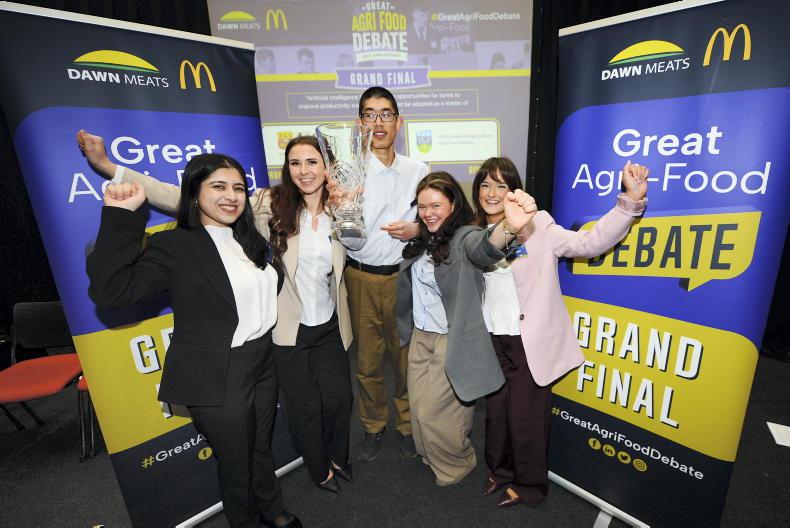Next week, the first real market consequences of Brexit for Irish dairy, beef and sheep exports come into effect with the opening of the UK market for tariff-free imports from Australia and New Zealand on 31 May. This week, the Irish organic sector has secured €1.5min funding from the Brexit Adjustment Reserve fund (BAR), and a further €26.8m for the fish processing sector was announced on Wednesday.
Minister Pippa Hackett said in the announcement that “this support will facilitate the development and delivery of marketing campaigns to highlight to consumers the increasing availability of quality Irish organic food.”
With this type of budget, there will be no shortage of advertising agencies capable of designing slick promotional campaigns, and Bord Bia will also welcome any extra money that comes their way and put it to good use.
Door shut on sheep producers
This good news for the organic sector contrasts sharply with what the sheep sector has been told over recent months, when the BAR was suggested as a funding source to offset falling prices. This is during the period in which UK sheep meat exports (almost exclusively to the EU) increased by 22%, while imports fell by 33% (AHDB).
Farmers will struggle to understand how the tiny organic sector has met the criteria for being disadvantaged by Brexit while they haven’t. Similarly, the meat and dairy processing sectors were among the first to successfully claim a large €100m slice of the BAR pie. The fisheries sector who took a direct hit when Brexit caused loss of mackerel and prawn quota, set up a task force and identified a need for €423m of funding.
Establishing the Brexit link
Farmers have been told as recently as last week by Minister McConalogue on the trade mission to China that “technically is the been very difficult due to the way BAR is constructed” to draw down funding, and that “we are very open to any suggestions to unlock extra funding.” While farmers may envy the funding for piers being refurbished that are more used for leisure than fishing, or the organic sector punching way beyond its weight, they need to find a way to demonstrate how Brexit will cost them.
One such opportunity arrives next week when the UK opens its doors to tariff free beef, lamb and dairy products. From 1 June, Irish beef producers will be competing in the UK market for imported beef from Australia, where farm gate price is currently over €1/kg lower than in Ireland and New Zealand, where Farmers Weekly report a farm gate price the equivalent of €3.48/kg. Coincidentally, Irish beef factories have begun reducing quotes to Irish farmers recently, and while there may be other factors contributing to this, two new suppliers to our biggest market certainly don’t help.
The price differential between Ireland and Australia/New Zealand is even more dramatic for sheep meat. New Zealand has currently more tariff free quota to the EU and UK than it uses, but Australia doesn’t. Bord Bia data for the 2023 year-to-date average Australian price is the equivalent of €4.69/kg, compared to the Irish average of €6.56/kg and €6.36 in Britain. Surely, the UK has to be an attractive market for Australian sheep meat exporters for the remainder of 2023 with the potential to squeeze domestic UK prices and lead to further UK exports to the EU.
There is no doubt that Ireland will always be best located to supply UK import requirements for dairy, beef and sheep meat. Our close geographical location and integration of much of our processing sectors means that Irish suppliers can blend seamlessly into the UK, just in time of delivery schedules of the big supermarkets, burger chains and wider food service sector.
However, just as Ireland exports successfully to 180 countries around the world when all food and drinks products are included, so too does Australia and New Zealand. Asia may be their closest market and first choice price being equal, but they successfully ship all around the world.
They won’t dislodge Irish exports from the UK market but they will be an alternative supplier, and the very minimum effect will be that the price they can offer will be used in negotiations with Irish suppliers. Brexit has arrived for Irish farmers.








SHARING OPTIONS